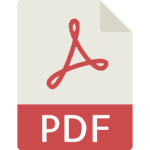Subtotal: $20.00
Legal Document Shop
Showing 3646–3660 of 5179 resultsSorted by latest
Filter by: FEDERAL DISTRICT
Filter by Price
Filter by: FILE TYPE
Defendant Motion for Discovery and Inspection under Federal Rules of Criminal Procedure 16
Federal criminal case motion for discovery and inspection pursuant to Rule 16. US District Court for the District of Colorado.
Motion for Disclosure of Information Sufficient to Establish the Trustworthiness of Critical Government Evidence
Federal criminal motion form the defense for disclosure of government information to establish sufficiency of prosecution evidence.
Defendant’s Motion in Limine
Federal criminal motion in limine, where defendant seeks to exclude out of court statements, news reports, GAO office reports and other items. US District Court for the District of Colorado.
Defendant’s Submission of Voire Dire Questions
Federal criminal case: Defendant’s submission of specific questions for voire dire. US District Court for the District of Colorado.
Defendant’s Motion for Bill of Particulars
Federal criminal case motion for bill of particulars under Rule 7(f). US District Court for the District of Colorado
Plaintiff’s Brief in Support of Motion for Temporary Injunction and Expedited Discovery
Plaintiff’s Brief in support of motion for temporary injunction and expedited discovery, from the US District Court for the District of Minnesota. Companion Objection to same, as well as the original complaint, available on Lawyers Help Lawyers as well.
Defendants Request for Evidentiary Hearing on Pretrial Motions
Federal criminal request for evidentiary hearing. US District Court for the District of Colorado
Federal Civil Complaint for Default on Promissory Note
Federal Civil Court Complaint for default on a promissory note. Diversity case out of the US District Court for the Eastern District of Michigan.
Federal Civil Complaint for Copyright Infringement
Federal Civil Complaint for violation of copyright.
As a general matter, copyright infringement occurs when a copyrighted work is reproduced, distributed, performed, publicly displayed, or made into a derivative work without the permission of the copyright owner.
Copyright infringement can be a felony or a misdemeanor. A felony charge must involve an infringement of the copyright owner’s reproduction or distribution rights. A felony conviction carries a maximum sentence of five years in prison and a maximum fine of $250,000.
Copyright infringement is using someone else’s work without getting that person’s permission. … The owner of a copyright gets to decide who can legally make copies of that work. It is illegal to copy large sections of someone else’s copyrighted work without permission, even if you give the original author credit.
The legal penalties for copyright infringement are: Infringer pays the actual dollar amount of damages and profits. The law provides a range from $200 to $150,000 for each work infringed. Infringer pays for all attorneys fees and court costs.
US District Court for the Eastern District of Michigan
Plaintiff’s Memorandum in Support of Motion for Approval of Plan for Class Notice
Plaintiff’s Brief in support of class action notice to class members following class certification. US District Court for the District of Colorado.
Civil Complaint for Damages, Declaratory Relief, Extraordinary Writs, and Preliminary Injunction
Federal Civil Rights Complaint (42 USC 1983), including requests for damages, injunction, extraordinary writs, and declaratory relief out of the US District Court for the Eastern District of Michigan.
Declaratory relief refers to a judgment of a court which determines the rights of parties without ordering anything be done or awarding damages. By seeking a declaratory judgment, the party making the request is seeking for an official declaration of the status of a matter in controversy.
The declaratory judgment is generally considered a statutory remedy and not an equitable remedy in the United States, and is thus not subject to equitable requirements, though there are analogies that can be found in the remedies granted by courts of equity.
Declaratory relief refers to a judgment of a court which determines the rights of parties without ordering anything be done or awarding damages. By seeking a declaratory judgment, the party making the request is seeking for an official declaration of the status of a matter in controversy.
Defendant’s Memorandum in Support of its Motion to Dismiss
Defense Brief supporting motion to dismiss a misappropriation of trade secrets and breach of contract case under diversity jurisdiction. US District Court for the District of Minnesota.
Federal Civil Complaint under 42 USC 1983 (Excessive Force)
Civil Complaint pursuant to 42 USC 1983 for police use of excessive force. US District Court for the Eastern District of Michigan.
Federal Civil Complaint under ERISA
Federal ciil complaint brought under ERISA against Veteran’s Affairs. US District Court for the Eastern District of Michigan.
Defendant’s Memorandum in Opposition to Plaintiff’s Motion for Temporary Injunction and Expedited Discovery
Defendant’s opposition brief in opposition to motion for temporary injunction and expedited discovery. Includes analysis of competing state laws. US District Court for the District of Minnesota.









 Employment Offer Letter
Employment Offer Letter